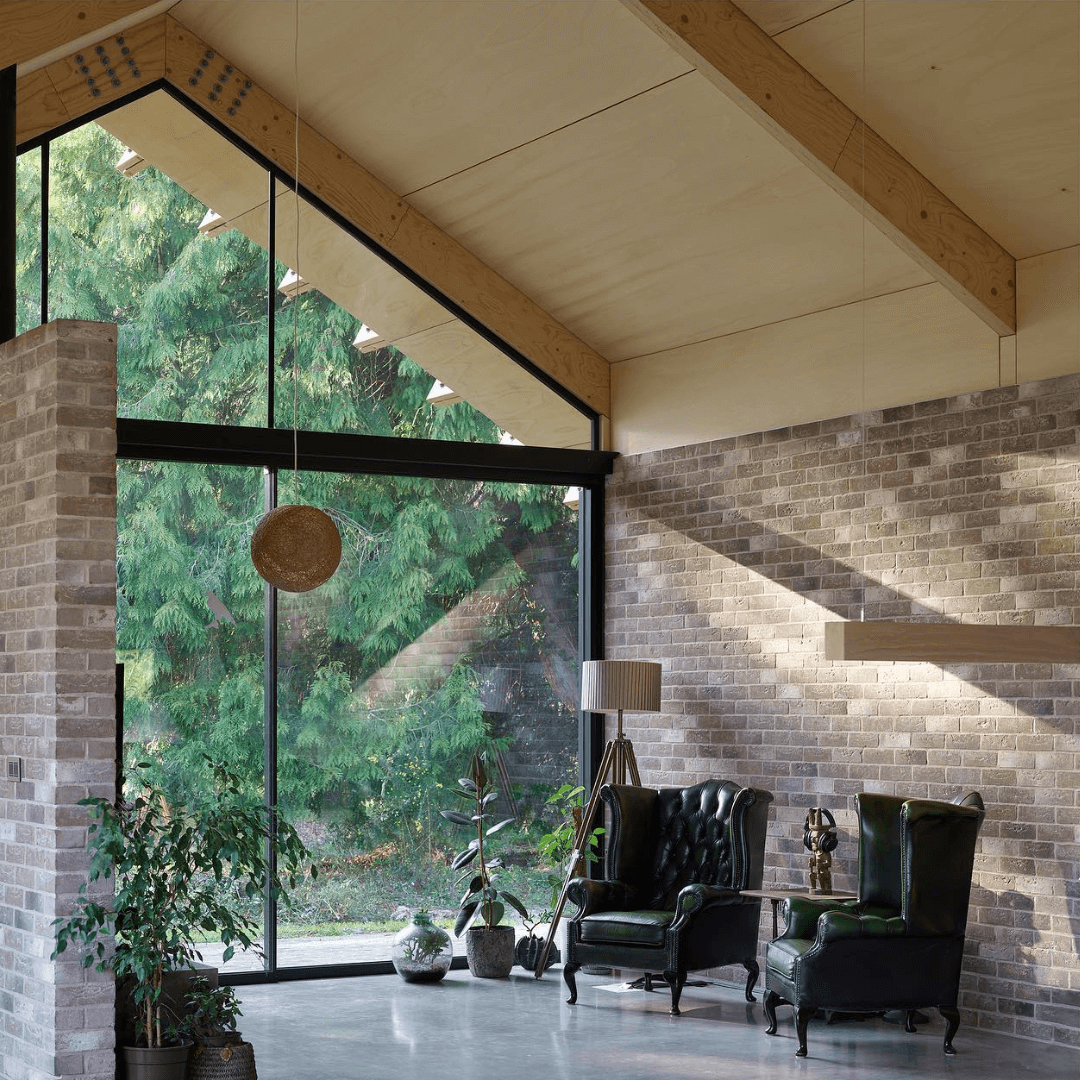The RedBook Guide: How to build the perfect house (Part Two)
In Part One of our Guide on How to Build a House we outlined the most important steps to consider at the outset in order to get a new-build project off the ground successfully. In this second part, we cover the critical factors that everyone needs to know about: money, size, and timescale, and how to manage your own expectations.
HOW MUCH WILL IT COST
Here we explain how building a new house can have financial advantages that are not obvious at first.
Consider the stamp duty payable when you buy a property. The cost of a site with a house on it that is suitable to be knocked down and replaced will be a great deal less than the cost of a site with a perfect house, so the stamp duty payable is much less, too. That is the first potential saving.
Another potential saving comes from the fact that knocking down and replacing a house is VAT free, while building works on an existing house generally attract VAT at 20%. So building a new house can also be cheaper than adapting or enlarging an existing house because for every pound you spend on building the new house goes into the house, whereas only 80p in every pound goes into enlarging or adapting an existing house.
Then there is the fact that each penny you spend on a house that you build goes into creating something you have chosen, compared to buying a finished house then changing bits and spending money on replacing them.
If you are careful and well advised, you can add great value to a property by building a new house to replace one you knock down.
HOW BIG?
Although anyone’s natural instinct is to build as big a house as possible on a given site, there are other factors other than planning permission and your available budget that may influence how big a house you actually build.
Veteran architects often say that a bigger house is not necessarily a better house: you may do better to build a house using high-quality (and more costly) materials rather than a larger house of poorer quality. And a big house does not suit every site. In the open country, a big house on a small plot can look oddly out of proportion and grandiose.
It is also worth keeping in mind that the best houses in the country come with outbuildings built on a scale to match. These can include garaging, machinery storage, staff or guest accommodation, and sometimes stables and so on. The budget for the house should therefore be adjusted to allow for building suitable outbuildings, too.
“…the best houses in the country come with outbuildings built on a scale to match”

TOP TIPS
- If planning permission exists for a house of a certain size, and you want more rooms than the permission would allow, it is tempting to think of putting rooms such as a media room, utility rooms or space for boilers and so on underground as getting planning consent for rooms underground can be much easier than for any above ground. This approach can work well but be aware that the cost of creating underground rooms is roughly double that of any above ground.
- The size of a house is disproportionately affected by the size of its entrance hallway and staircase. So if you choose a grand hallway with a double-cantilevered staircase, for instance, the overall size of your house and thus the build cost will inate greatly as the rest of the house will have to be built around this large core. There is a delicate balance to be struck between the budget and the permitted size of the house, ‘wow factor’ of the hallway/staircase, and required number of bedrooms etc.
“The clock stops dead on a project if a planning application is refused or meets resistance”
HOW LONG?
Builders are usually blamed for making projects take far longer to nish than planned. But unless you have bought a site with planning permission to build exactly the house you have in mind, the biggest unknown at the start of new-build projects and the factor that can cause more delay than any other is the process of getting the planning permission you want. (Without planning permission, you cannot legally build.)
Planning permission or ‘consent’ is given by your local council, after asking other stakeholders such as the parish council for their views on your proposal. And while councils are obliged by law to process planning applications within 8 weeks, in reality, this period often stretches out as councils are generally short of money, understaffed and overworked and thus struggle to meet their deadlines.
The clock stops dead on a project if a planning application is refused or meets resistance. You may have to reapply and to start the application process all over again—or appeal against the decision, which in itself takes many months. This whole process can stall projects for extended periods.
Some architects are extremely skilled at gaining planning permission and others less so or are just less interested in this aspect of a project. It is quite often the case that an excellent planning consultant will greatly increase the chances of gaining permission.
Good planning consultants are skilled at developing a strategy to avoid or at least minimise delays, keep the pressure up on councils to meet their deadlines and give a planning application the best chance of success. RedBook advisor and author Clive Aslet has offered useful advice on navigating the planning minefield in his article Planning Officers and How to Tame Them. Although geared to conservation projects, many of the tips apply to new builds as well.
TOP TIPS
- While architects can be brilliant at gaining consent without the help of planning consultants, it is frequently the case that two heads are better than one, and indeed planning consultants who spend their lives dealing with the dry minutiae of planning law can be more skilled than architects at dealing with planning matters. Architects generally welcome the involvement of planning consultants in a project.
- The smaller the building firm you choose to create your house, the longer it is likely to take to complete. A big building rm is probably going to be more costly, but the chances are they can commit more personnel to the project than a small rm and thus hasten the end of the project.
- If you are knocking down and replacing an existing house you will need to carry out a bat survey of your property, and possibly a wider ecological survey because this information is required in an application for planning permission. Bat surveys can only be carried out during the warmer months of the year when bats are not hibernating. This generally means surveys need to be carried out between April/May to early September. So, unless you complete a survey by the onset of autumn, you will not be able to apply for planning permission until the following spring or early summer—a major potential delay.
“With the right team…you will be all set for an extraordinarily rewarding experience in building your home”
IS IT WORTH IT?
How can be sure that the money you are about to spend on building a new house will be a good investment, or at least that you will get your money back if you sell the finished house?
The best answer is to seek advice from either an estate agent who knows the market for your kind of property or from a property-search agent or both. These two types of property specialists tend to have slightly different views on value, as they represent respectively sellers and people who are looking to buy. Show these specialists your plans, discuss your intended budget, and ask for their opinion on the potential sale value of the new house then adjust your plans if you need to.
Above all, don’t be discouraged by the prospect of a big building project. It is safe to say that we have yet to meet anyone who has built their own house, whether a client of ours or not, who is not thrilled by the results and deeply glad in retrospect that they took the decision to do so.
With the right team, chosen to suit you and your vision for your new house, you will be all set for an extraordinarily rewarding experience in building your home. And at the end of your project, you will have fulfilled your dream —and a dream that countless others aspire to realise.
At RedBook, we are the experts at launching projects. Whether you need interior designers, architects, builders, technical advice—or a full project team—we give you immediate access to the proven best and carefully align you with the ideal talent.
For further information, please contact us on 0207 060 6222. Or email: enquiries@redbookagency.com

